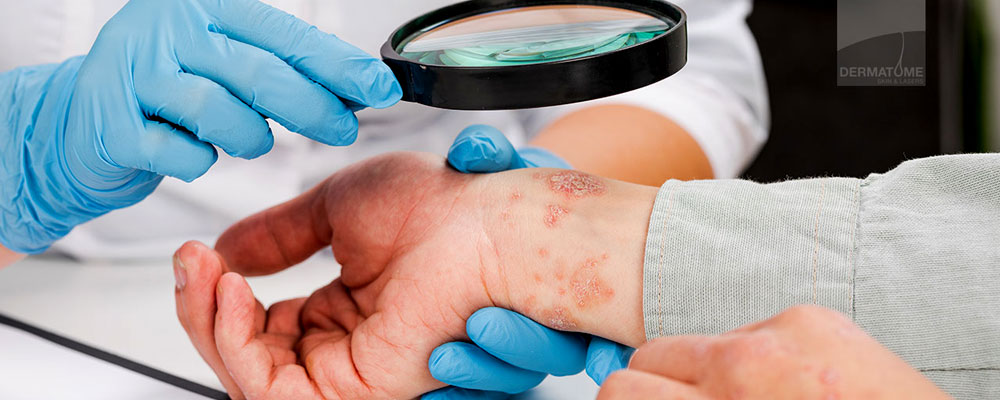Clinical Dermatology
Clinical dermatology is a branch of medicine that focuses on the diagnosis and treatment of skin, hair, and nail disorders. Dermatologists, medical professionals specialized in dermatology, are trained to address a wide range of conditions affecting the skin. This field encompasses both medical and surgical aspects of skin care.
Causes for clinical dermatology conditions:
- Genetic Factors: Many dermatological conditions have a genetic component, meaning they can run in families. Conditions like psoriasis, eczema, and certain types of alopecia may have a genetic predisposition.
- Environmental Factors: Exposure to environmental elements can contribute to various skin issues. This includes exposure to UV radiation, which can lead to skin cancers and premature aging. Irritants and allergens in the environment can also trigger conditions like contact dermatitis.
- Infectious Agents: Bacteria, viruses, fungi, and parasites can cause various skin infections. Examples include bacterial infections like impetigo, viral infections like herpes, fungal infections like ringworm, and parasitic infections like scabies.
- Immune System Dysfunction: Autoimmune and immune-mediated disorders can affect the skin. Conditions like psoriasis, lupus, and dermatomyositis involve the immune system mistakenly attacking the skin and other tissues.
- Hormonal Changes: Hormonal fluctuations can contribute to skin conditions. Acne, for example, is often influenced by hormonal changes, especially during puberty, menstruation, and pregnancy.
- Allergic Reactions: Allergies to certain substances can lead to dermatological issues. Contact dermatitis, urticaria (hives), and eczema can be triggered by allergens in the environment or substances that come into contact with the skin.
- Lifestyle Factors: Poor lifestyle choices, such as smoking, excessive sun exposure, a diet lacking essential nutrients, and stress, can impact the health of the skin.
- Medications: Some medications can cause adverse reactions affecting the skin. Drug-induced rashes, photosensitivity, and other dermatological side effects may occur.
- Trauma and Injury: Physical trauma, such as burns, cuts, or wounds, can lead to skin disorders. Keloids and hypertrophic scars are examples of abnormal healing responses.
- Inflammatory and Metabolic Conditions: Inflammatory conditions like rheumatoid arthritis and metabolic disorders like diabetes can have dermatological manifestations.


